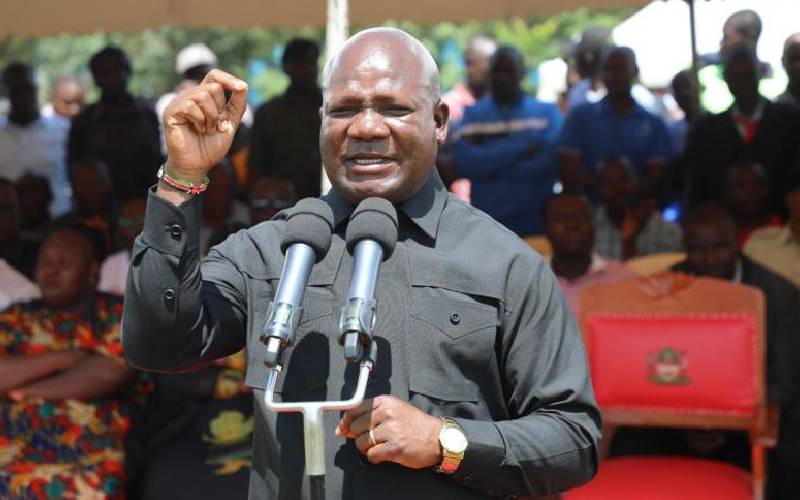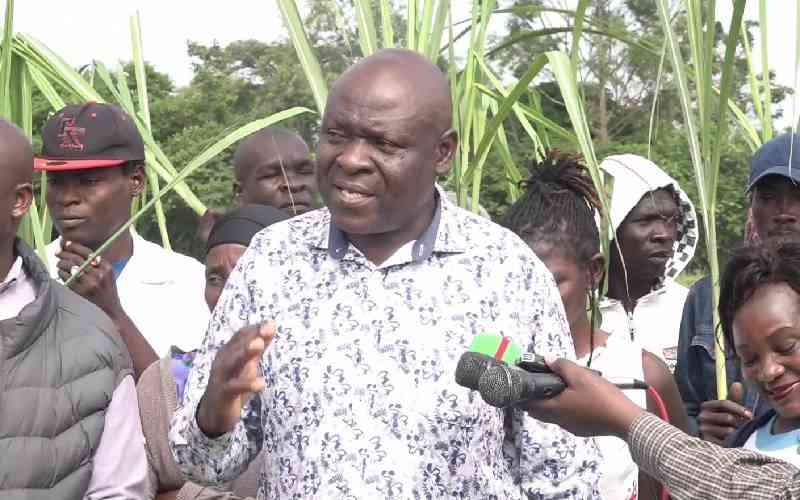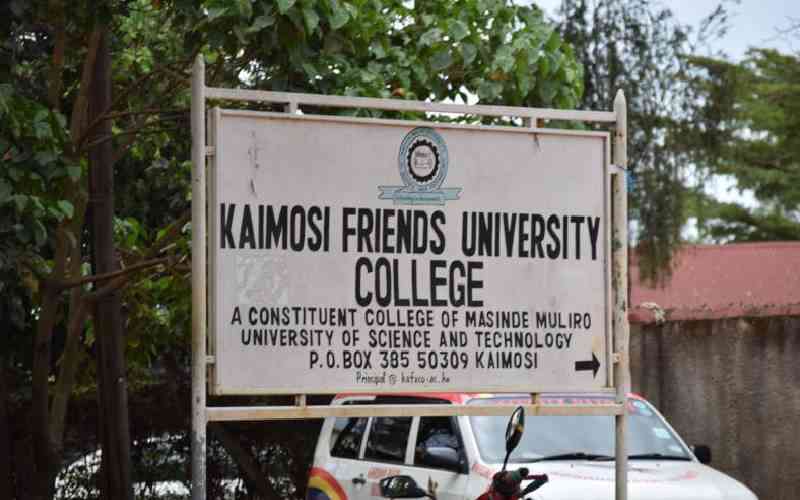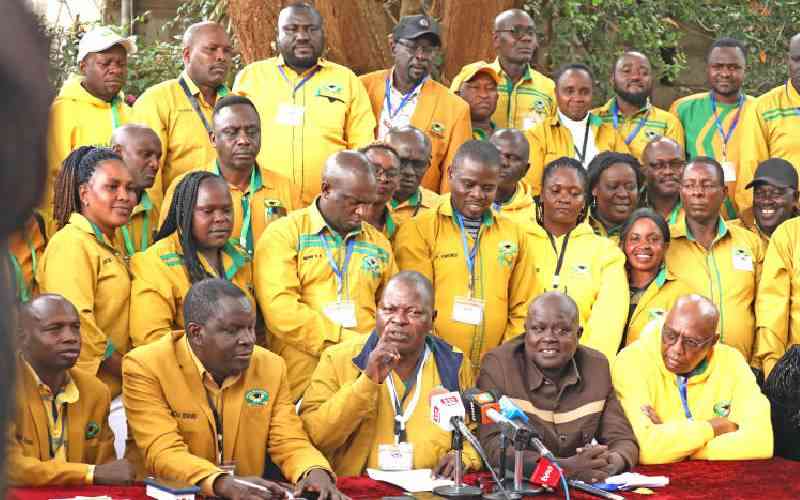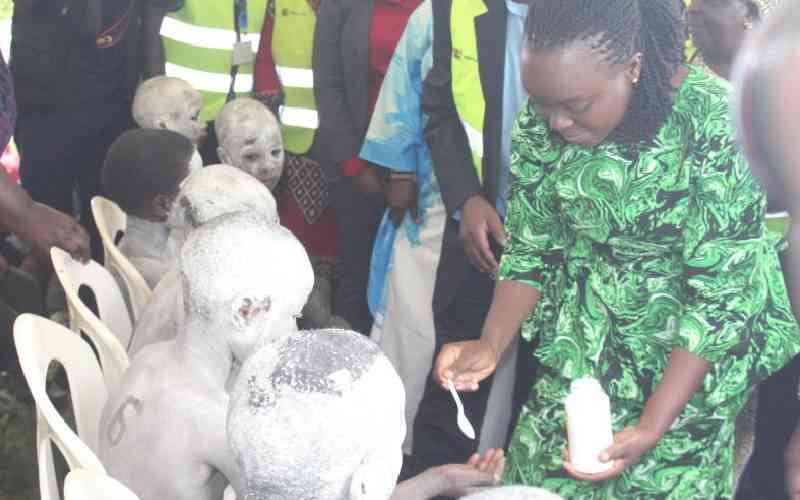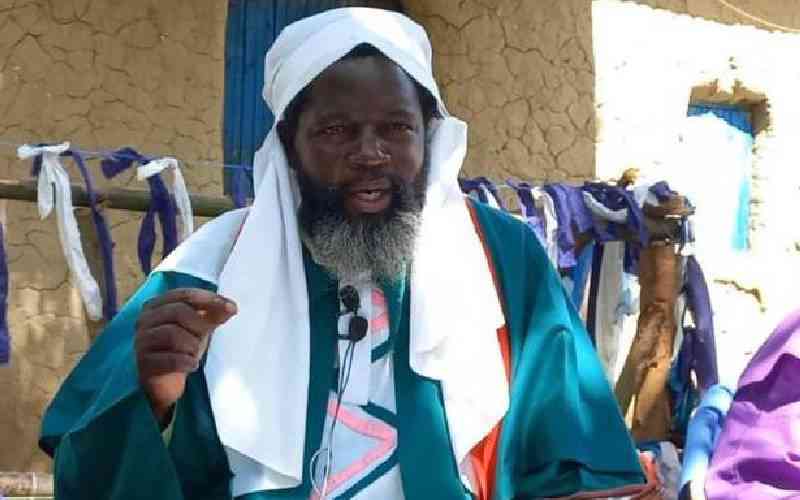
Bungoma County has produced the highest number of people who claim to be the reincarnation of Jesus Christ. Some call themselves prophets, angels and John the Baptist and sometimes, gods.
The most outstanding are Elijah Masinde wa Nameme, Jehovah Wanyonyi, Yesu wa Tongaren (Eliud Wekesa) and Nabii Yohana (Ronald Wanyama).
They all belong to the Bukusu sub-tribe of the Luhya. Historically, the Bukusu did not have a centralised leadership structure. Thus, the highest authority was the village elder who was known as Omukasa.
Healers and prophets who regularly communed with their ancestors were placed on the same pedestal and acquired special status. It is from this loose organisational structure that some of the most daring religious leaders carved niches for themselves as deities. The self-proclaimed prophets, angels and gods command cult-like following in their respective backyards. However, high levels of poverty and illiteracy stand out like a sore thumb among their ardent followers.
This is evident in their threadbare clothing, bare cracked feet, calloused hands from hard labour and subservient deportment that does not allow them to question anything their gods command them to do. They would do anything gods commanded them to, including the unimaginable.
Asked why the Bukusu tribe has produced the highest number of people who claim to be gods, Nabii Yohana says: "God uses poor people and communities to do his work. Jesus was born in manger in very humble surroundings. The Bukusu are among Kenya's poor communities and God has chosen to use them".
Apparently, it is not only the lowly in society who the prophets and gods attract like moths to a candle, politicians are also in the mix. They flock to their shrines when elections are about to be held.
When we visited Elijah Masinde's mausoleum in Kimilili, his eldest son, 83 year-old Richard Wafula told the The Sunday Standard that prominent politicians visit the mausoleum in secret or under the cover of darkness to gain 'spiritual' favours. He showed us a bound hardcover book in which high profile visitors sign, but turned down our request to peruse the entries.
Real life
Some of the gods, angels and prophets thrive on exploiting real life situations to assert their powers and practically use the scriptures to convince their followers about their word.
A characteristic of the gods, prophets and angels is that they love full flowing colorful robes, long hair and most of them spot goatees, which their followers emulate. As a rule, or because they ape their peers, they subscribe to wearing Akala (sandals made from worn car tyres). This practice might also have been influenced by pictorials that show disciples of Jesus Christ used to wear similar sandals made from animal skins. Nabii Yohana, who hails from Nandolia village in Kanduyi in Bungoma County, avers that he is the reincarnation of John the Baptist. "I was born in Egypt and later moved to Israel at the age of five. I lived there for 230 years and I am the one who prepared the way for Jesus and ordained him to commence his work before I went to heaven," Nabii Yohana says and adds: "I am the way, the truth and the last prophet who God sent to save humanity. When Jesus Christ was crucified, he gave me the power to raise the dead and God sent me to complete the work that Jesus Christ started."
Geographical locations
But while one would have expected Nabii Yohana (John the Baptist reincarnate) to acknowledge Yesu wa Tongaren (Jesus Christ reincarnate) as the one whose way he came to clear, their paths have never crossed, notwithstanding that their geographical locations are barely 100 kilometers apart.
When pressed, he makes a contradictory statement: "The Bible says you will know them by their actions. God changes the rules after every 3,600 generations, hence not everybody is who he claims to be. Only God knows his anointed." Yesu wa Tongaren, who is also unaware of Nabii Yohana who allegedly came to make way for him says: "I am the son of God and I came back to complete the work that I started more than 2,000 years ago. I have come for the second time to save those who await me, not to die for their sins since the Bible does not speak about a second crucifixion."
He narrates how it was revealed to him through numerous visions from angels that he was the true 'son of God' who had returned on earth to take his people home even as he swears that Lukhokhwe village in Tongaren Subcounty is the New Jerusalem.
His sect members believe Lukhokwe village is the Biblical Jerusalem - the city in which Jesus Christ grew up, preached and performed miracles. Sect members believe their vision and dreams are a revelation from God that should be fulfilled.
Male names
The naming of prophets and angels in Yesu wa Tongaren's church does not conform to the Bible or gender. It is based on revelations that the would-be prophets themselves claim they received. Thus, there are women prophets who bear male names. All church members say Yesu wa Tongaren performs miracles. Many recounted their first hand experiences as proof of that.
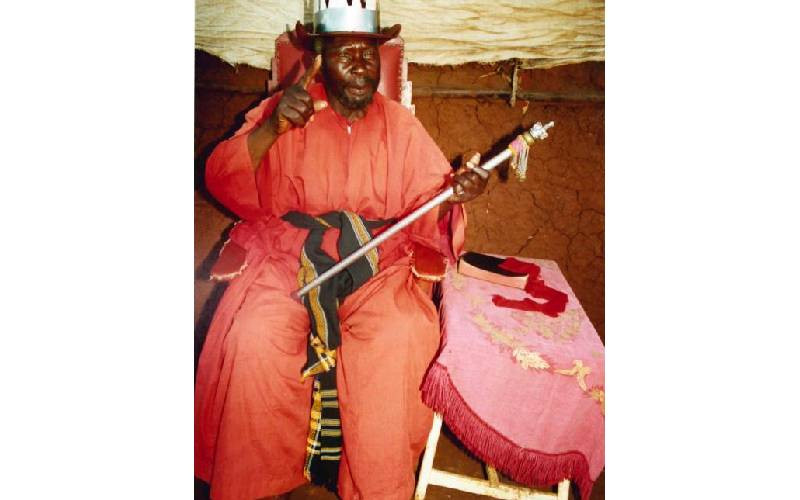
Nabii Pesai, who joined Yesu wa Tongaren in 2011 says: "My husband was a habitual drunk. I had a two and a half year-old child who could not walk or speak. There were unending fights with my husband but when I was directed to seek help here, all my troubles ended. My child started to walk and speak after just one session of prayer. My husband got saved and today, he is a preacher".
Nabii Abishai recounts how evil spirits tormented her and her daughter who had married into a family that they claim practiced witchcraft. A week of prayer at Yesu wa Tongaren's place and all the problems left her. "I was possessed by demons and could barely talk coherently or see well. I tried many traditional doctors and went to conventional hospitals but there was no change. Yesu solved my problems permanently."
Jehovah Wanyonyi, leader of the Lost Israelites Church, declared he was God and had power to cure Aids, cancer, and hypertension. His followers believe he is Jesus Christ and when he died in 2015, they were informed by Wanyonyi's inner core members that their god had gone to heaven to prepare a place for them and would be back within three days after his disappearance from public limelight. They are still living in denial today and any suggestion that Wanyonyi is dead invites hostility. Observers say these claimants to holiness could have also exploited a vacuum created by colonialism to elevate themselves to the positions of 'saviours' and consequently, gods.
"God appeared to Elijah Masinde in the form of a dove in 1939 and spoke to him about the difficulties that his people were going through and asked him to give up football to specifically rescue the people from colonial oppression," says 80-year old Kabule Wanjala, a staunch member of the Dini ya Musambwa.
Culture and values
In 1945, Elijah Masinde formed the Dini ya Msambwa (religion of the ancestors) sect out of defiance to colonialists and a challenge to Christianity. He did this at a time when colonialists had completely subjugated Africans and not only imposed their culture and values, but their religion as well.
Masinde's defiance of colonial powers and the persecution that followed and kept him in and out of jail enhanced his standing in the eyes of natives and that, together with his knowledge of herbs, gave him the deity status until his time of death in 1987. The question arises: Do these prophets and gods possess the powers they claim to have? Pastor Julius Omuse of Seed Faith Church laughs off the claim by the group that they are Jesus or John the Baptist. "Some of them have mastered the art of playing with the peoples psychology," he says.
Prof Kenneth Otieno, a psychologist at Masinde Muliro University of Science and Technology in Kakamega says the so-called gods survive because they use magical powers on their followers. "The mind of the victim is manipulated in such a way that makes him or her believe the things that are happening are real. Most of the church leaders have mastered the art of manipulation," Otieno says.
"Hard times and economic desperation, he adds, expose people to suffering. These people are hurting without a place to turn to. As such, any message of hope, which these gods are good at, makes perfect grounds for them to thrive. The gods have a way of connecting with the masses through clothing. Many people preach how Jesus Christ looked in the old days and you will find people tend to have faith church leaders who put on sandals and traditional-like dresses," Otieno says.
He adds: Modern day churches are too formal for the rural folk who often feel they are strangers whenever called upon to pay tithes in cash yet their gods allow them to give eggs, bananas and food offering that most of them can afford."
Bishop Nicholas Olumasai, the chairman of the Kakamega Interreligious Council of Kenya said: "We therefore call upon people to be wise and prayerful to set themselves free of such chains. People claiming to be God or Jesus are seeking to make themselves relevant by taking advantage of the vulnerable" Olumasai said.
He added: "As much as we agree that every individual has the right to worship and to believe in what he or she thinks is right, do not forget that they also have the right to deny bad things and being taken hostage. Our people need spiritual liberation," Olumasai adds.
The type of servitude demonstrated by the followers of latter day angels, prophets and gods vindicates German theorist Karl Marx's claim that "Religion is the opium of the masses". Marx believed that religion serves the same purpose as opium, and that is because religion produces pleasant illusions that dull pain and suffering the way opium, or cannabis sativa, does in patients. Indeed, most pain relievers - opioids - contain doses of opium.
 The Standard Group Plc is a multi-media organization with investments in media platforms spanning newspaper print
operations, television, radio broadcasting, digital and online services. The Standard Group is recognized as a
leading multi-media house in Kenya with a key influence in matters of national and international interest.
The Standard Group Plc is a multi-media organization with investments in media platforms spanning newspaper print
operations, television, radio broadcasting, digital and online services. The Standard Group is recognized as a
leading multi-media house in Kenya with a key influence in matters of national and international interest.

